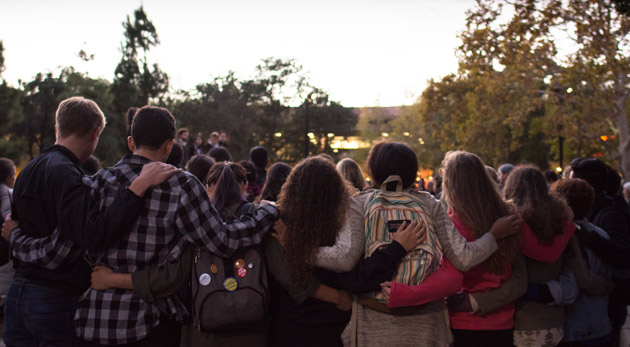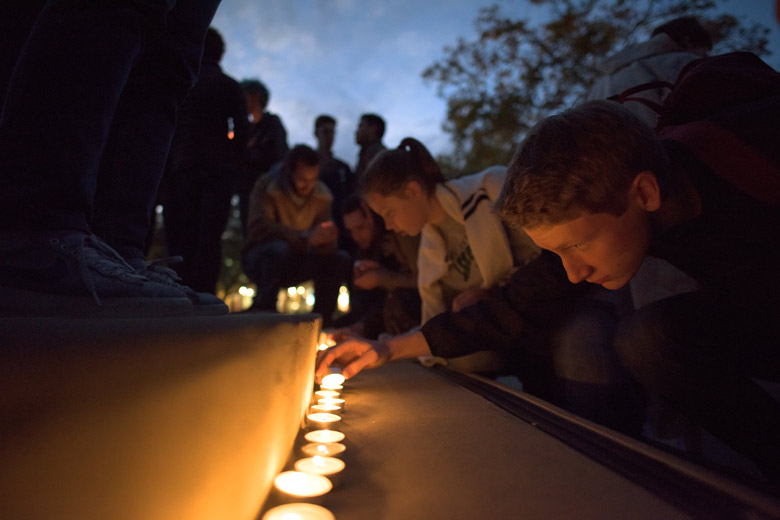At Stanford, vigil held for terror victims in Paris, Beirut and Baghdad
Some 200 members of the Stanford community braved cold and wind to stand in solidarity Sunday night with victims of the recent Islamic State terrorist attacks in Paris, Beirut and Baghdad.
The gusts of wind made it hard to keep candles lit during Sunday evening's vigil for victims of the terrorist attacks in Paris, Beirut and Baghdad. But that did nothing to diminish the palpable spirit of about 200 students, faculty members and staff gathered in White Plaza.
The vigil was sponsored by the French Stanford Student Association (FSSA) in association with students from the Stanford Law School. But FSSA members were clear that they stood in equal solidarity with victims of violence elsewhere, especially Beirut and Baghdad.
Members of the Stanford community appear to have been spared from terrorist attacks that are considered among the deadliest in Western Europe since 2004. Over the weekend, Islamic State (ISIS) terrorists killed at least 129 people in a series of attacks across Paris. Just days before, ISIS bombs killed 43 in Beirut. Blasts killed at least seven people in Baghdad on Sunday.
Word from the Bing Overseas Studies Program in Paris is that all students studying there are safe and accounted for, as are three Fulbright scholars from Stanford. Shalini Bhutani, associate director of the Bechtel International Center, emailed students and post-doctoral scholars from France and Lebanon, expressing the university's concern for the safety of their families.
"We heard back that their families and friends are doing OK," she said.
Nevertheless, the recent violence profoundly affected those attending the vigil.
Among those speaking was Anne-Sophie Bine, an English major from Paris, who is a member of FSSA.
"ISIS targeted places that I hung out," Bine said.
"These places are familiar to me," she said of the concert hall, stadium, restaurants and cafes targeted by suicide bombers and gunmen. "These are my places, my sanctuaries. The only reason it wasn't me is that I was here studying at Stanford."
Bine encouraged members of the crowd not to allow ISIS's actions to diminish their opinions of Muslims or to prompt them to equate Islam with violence or terrorism.
"I would argue that the main takeaway be love. We must love each other," Bine said. "Drop the gun and extend the hand instead."
Her message was echoed by Thomas Trinelle, a graduate student in civil and environmental engineering, and Sarah Salameh, a mechanical engineering major who spoke on behalf of Stanford Arab students. Trinelle, also a member of FSSA, said he hoped the vigil would "send a message of tolerance" for all ethnicities, religions and nationalities.



Share This Story